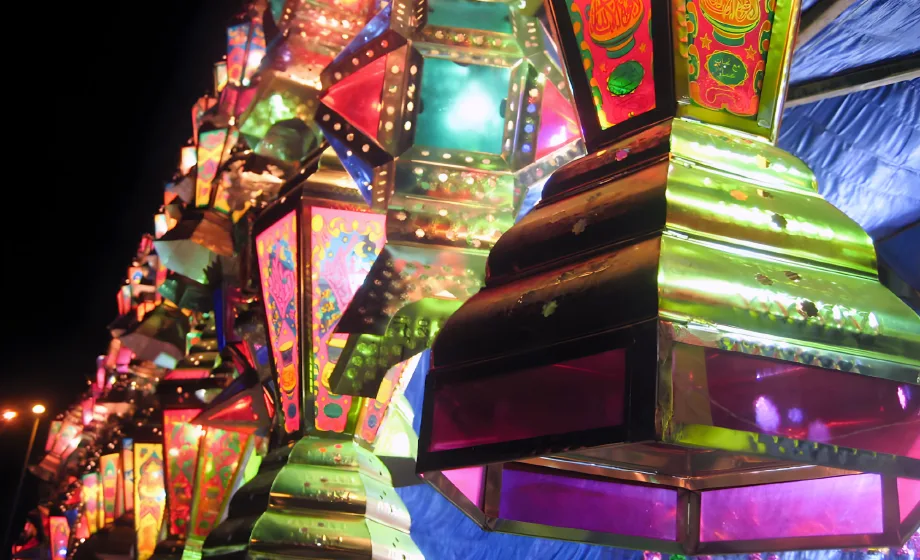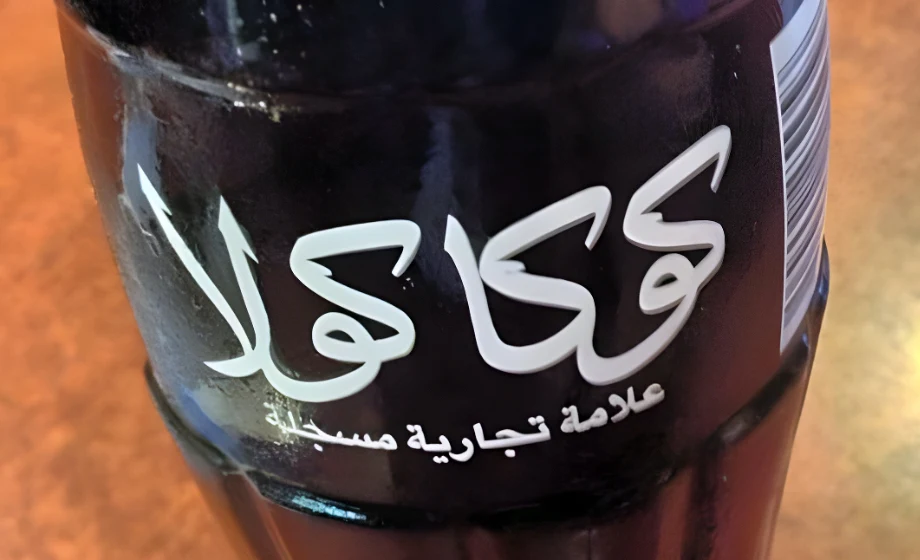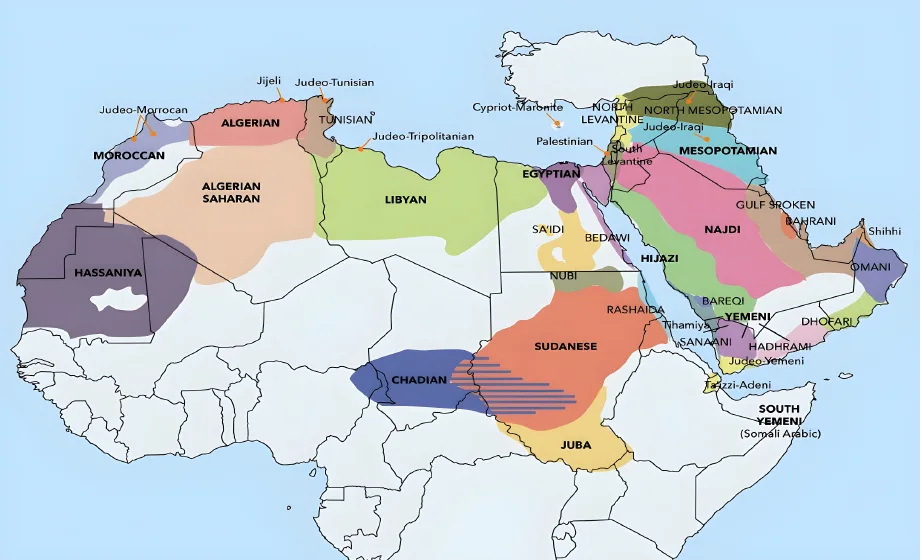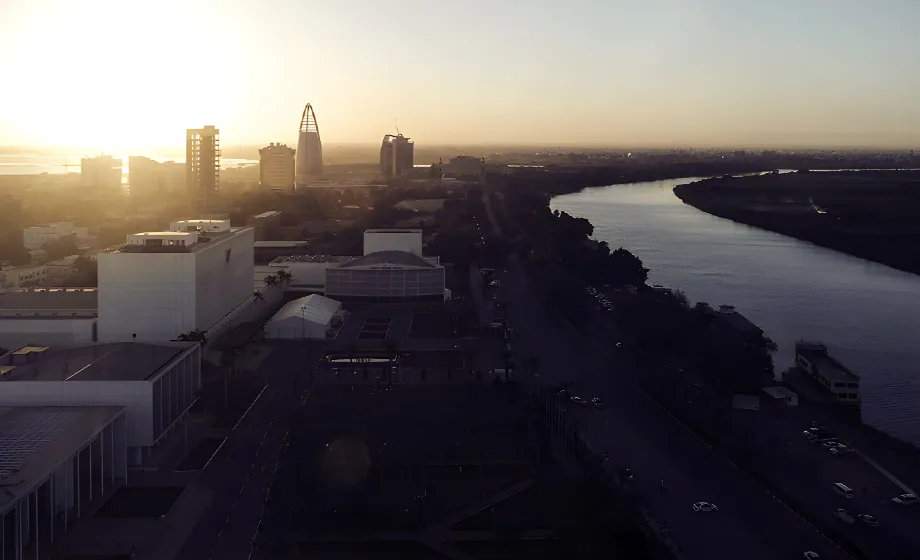You probably already know the basics of Ramadan. It’s one of the holiest and most exciting times in the Muslim world. For Muslims, the month is a time for growing closer to God through abstinence and fasting. This also promotes solidarity with those who usually go without food on a daily basis.
For non-Muslims living or traveling abroad, though, the Ramadan experience might be a little disorienting. Some may have questions that are awkward to ask their friends or colleagues. Members of our team have lived around the Arab world and have had a diverse range of travel, work, and social experiences during the holy month.
We’ve put together this Q&A guide to help answer the many questions we’ve heard about how to navigate during Ramadan. Did we miss your question? Just contact us here and we can update the article.
- Do non-Muslims have to fast during Ramadan? No, as a non-Muslim, you do not have to fast. But, many food outlets are closed or have shorter daytime hours. So, if you don’t plan your meals ahead, you may find yourself fasting anyway!
- Who must fast during Ramadan? Adolescent and adult Muslims must fast from sunup to sundown each day during Ramadan. Children, the elderly, the sick, and pregnant women do not have to fast. Yet it is not uncommon to encounter people in these groups fasting anyway. It comes down to personal preference and practice.
- How should I greet people during Ramadan? Here are a few common season greetings. The most typical time to use these greetings is at the beginning of Ramadan, and then around Eid al-Fitr, the holiday that closes the month.
Universal Greetings
| English | Arabic | Arabic (transliteration) | English |
|---|---|---|---|
| Greeting | رمضان كريم | ramaDaan kareem | Blessed Ramadan |
| Response | علينا وعليكم | ‘alaina wa ‘alaikum | Upon us and upon you! |
Universal Greetings (More Formal)
| English | Arabic | Arabic (transliteration) | English |
|---|---|---|---|
| Greeting | كل عام وأنت بخير | kul ‘aam wa anta/anti bikhair | Many happy returns! |
| Response | وانت بخير | wa anta/anti bikhair | And you as well! |
Lebanon
| English | Arabic | Arabic (transliteration) | English |
|---|---|---|---|
| Greeting | ينعاد عليك | yin3ad 3alaik | May you live to celebrate every year |
| Response | وعليك | wa 3alaik | And you as well |
Egypt
| Eglish | Arabic | Arabic (transliteration) | English |
|---|---|---|---|
| Greeting | كل سنة وأنت طيب | kull-e sana wa inta tayyib | Many happy returns |
| Response | وأنت طيب | wa inta tayyib | And you as well |
- Should I avoid eating in public? Yes, you should try to make every effort to not eat in front of people who are fasting. The best way is to eat your meals at home or in a non-public spot during the day.
- What about drinking and smoking? The same goes for these two as well: don’t do it. If you need to drink some water during a hot day, go to a restroom or an area shielded from the main streets. There you may avoid drinking in front of others. The scent of smoke wafting through the air can be especially torturous for those who are fasting. As such, do not smoke on the streets.
- Where can I get food during Ramadan? Some major international fast-food chains still operate during their normal business hours. Grocery stores are also open to allow people to buy food for iftar (the fast-breaking meal) and sohur (the pre-fast meal). However, they usually open their doors in the afternoon. Local governments in cities also erect tents where the poor may gather as a community for breakfast.
- What is the etiquette if I’m invited to an iftar or sohur meal? Your neighbors may invite you to share meals with them or bring you food. Make every effort to accept their offer, as home-cooked meals are the best Ramadan foods, and breaking the fast together is a great way to develop relationships, both business and personal. Be sure to arrive early so as not to keep them waiting on you to break the fast. Bring a small gift, such as dates or a dessert, to show your appreciation. Keep in mind that no one will start eating until they hear the call to prayer or another signal that the fast for the day has ended, so don’t accidentally pick at the food or take a drink before then!
- How does a business get done during Ramadan? Regular business hours usually shift during Ramadan to accommodate fasting and celebrations. This means shorter work days that start later in the day. As such, you will need to reorient your typical work routine accordingly. It is not uncommon for a business to be conducted late into the night, as people perk up after ending their fast.
- When does Ramadan start and end in my area? In many places, there are different public signs for each of the main times of the day. Many countries have mesaharaty (village drummers), who shout early in the morning to wake people for the sohur meal. The official start of the fast is the fajr (dawn) prayer. The muezzin usually calls people to prayer at sunrise. At sunset, some cities fire a cannon blast to signal the end of fasting and the start of iftar. The date of the end of Ramadan varies by region. The Islamic calendar is lunar, so the first new moon of the following month determines the end of Ramadan. Thus, a country’s vantage point of the skies could add an extra day to the month. As the end of the month draws near, most news programs will begin predicting the end of the season. Plus, there are plenty of websites with up-to-date forecasts by geographic location. And even if you don’t look to either of these sources, your neighbors and coworkers will remind you as soon as they know!
- Should I behave differently? Please don’t! Though fasting may seem arduous, many Muslims see Ramadan as a joyous and positive experience. Assuming that people will be grumpy, no work will get done, or that you must totally change your behavior are great ways to miss out on the joyous atmosphere that develops during the month. Just stay as courteous and kind as you are during any other time of the year and you will be fine. If you speak or are learning Arabic, Ramadan is also a great time for television viewing, as networks save their best programming for the prime-time post iftar hours.
- What is proper workplace food etiquette? In an office setting, try to bring in food that is not strongly fragrant. Also, keep your eating noises to a minimum (hearing people chew food is annoying enough, even when one isn’t fasting!).
- Anything else I should be aware of? Traffic accidents do rise during Ramadan due to fatigue, so you may want to exercise extra caution on the roads. Also, be aware that traffic jams tend to develop right before iftar as people rush to make it home to break their fast.
- What happens after Ramadan? The Eid al-Fitr holiday marks the end of Ramadan. The celebration includes prayers at the mosques, day-long feasts, public festivals, and gift-giving. In most countries, the holiday lasts two to three days. During that time, people travel around the country to visit relatives. If you thought traffic was bad during Ramadan, wait until Eid!



